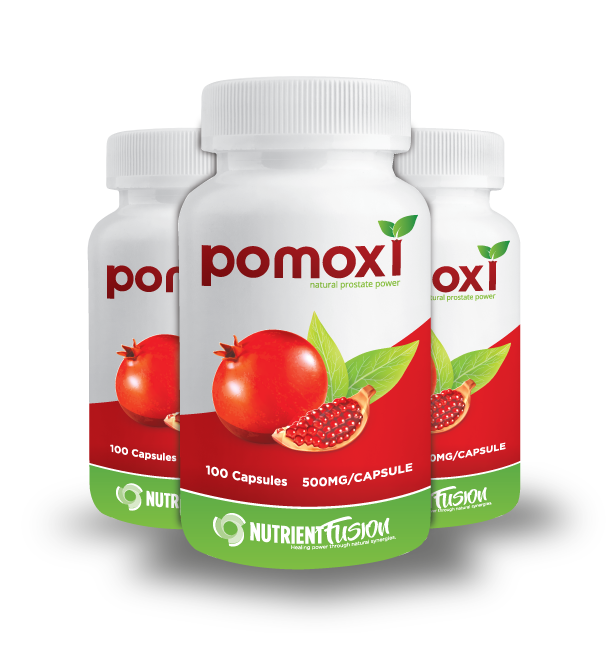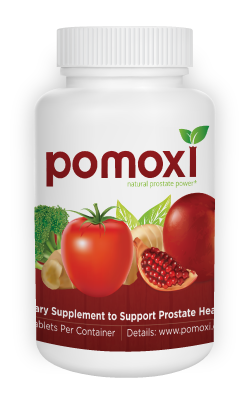Quercetin Helps Lower PSA and Maintain Cholesterol and Blood Pressure
Subscribe and Save 15%
BUY NOW
Quercetin is the most common flavonoid in the human diet and has multiple health benefits, including lowering testosterone, and PSA levels in men at relevant doses in clinical trials. This is the primary goal of including Quercetin in the Pomoxi formula.
Quercetin is gaining scientific interest for its various anti-aging and immune-boosting activities. Several recent studies show that laboratory animals exposed to high levels of quercetin live longer and have longer health-spans. Laboratory models of aging, ranging from yeast species, roundworms, and cultured human cells, demonstrate that quercetin alone produces up to a 60% increase in life span.
But the real question is how much Quercetin do we get from a typical American diet? On average, Americans take in about 40 milligrams of Quercetin per day, mainly from onions and apples. Comparing this level to human trial dose effective levels, this amount is minor.
Most Americans do not obtain sufficient Quercetin levels through their daily diets, probably from insufficient fruit and vegetable intake. This is unfortunate because large-scale epidemiological studies show that sustained high intake of Quercetin from supplementation provide substantial improvements in cardiovascular health.
In a study of 805 men aged 65-84 years, individuals having the highest Quercetin intake were 68% less likely to die from coronary heart disease than individuals with the lowest intake levels. Further studies found a reduction in all-cause death of 31% for women and 24% for men, with a 46% lowering of coronary death rates for women and a 22% reduction for men with the highest dietary levels.
This dramatic cardiovascular protection is the result of a powerful combination of Quercetin’s various mechanisms, including its ability to lower cholesterol and lower accumulation of liver fat and abdominal fat.
In one study with Quercetin, a group of healthy male smokers took 100 mg/day of Quercetin or a placebo for 10 weeks, with blood tests done at baseline and at the end of the study. The supplemented individuals had significant reductions in total and LDL-Cholesterol (bad Cholesterol) and increases in HDL-Cholesterol (good Cholesterol). They also had a significant reduction in blood sugar, another Quercetin health benefit that was not expected.
A larger study of non-smokers showed similar results, with an 18% reduction in total cholesterol, a 27% reduction in LDL-Cholesterol, and a 33% increase in HDL-Cholesterol.
Both human and animal studies demonstrate that Quercetin supplementation can lower abdominal and liver fat, probably a result of decreased oxidative stress and inflammation.
Quercetin's cardiovascular benefits go farther than simply helping maintain cholesterol at healthy levels. Quercetin supports healthy blood pressure in normal ranges and increases plasma levels of nitric oxide, which benefits prostate function.
By blocking oxidation of LDL-Cholesterol, Quercetin counteracts a major source of prostate tissue and blood vessel inflammation that precedes atherosclerosis. Oxidized LDL-Cholesterol is the earliest initiating event in atherosclerosis. One human study found a 28% reduction in the rate of LDL-Cholesterol oxidation following two weeks of supplementation with quercetin at a minor dose of 30 mg/day.
There are several therapies that can be effective for prostate inflammation. Quercetin can lower inflammatory markers in the prostate gland as well lowering oxidative stress.
Study subjects taking a placebo pill had a mean improvement in symptom score from 20.2 to 18.8 (not significant), while those taking Quercetin had a mean improvement score from 21.0 to 13.1 of lowering inflammatory markers (very significant). 20% of patients taking placebo and 67% of patients taking Quercetin had an improvement of symptoms of at least 25%. In 17 subjects who received Quercetin in the open-label study, 82% had at least a 25% improvement in symptom score.
The study authors concluded that “Therapy with the bioflavonoid quercetin is well tolerated and provides significant symptomatic improvement in most men with chronic high pelvic inflammation.”


